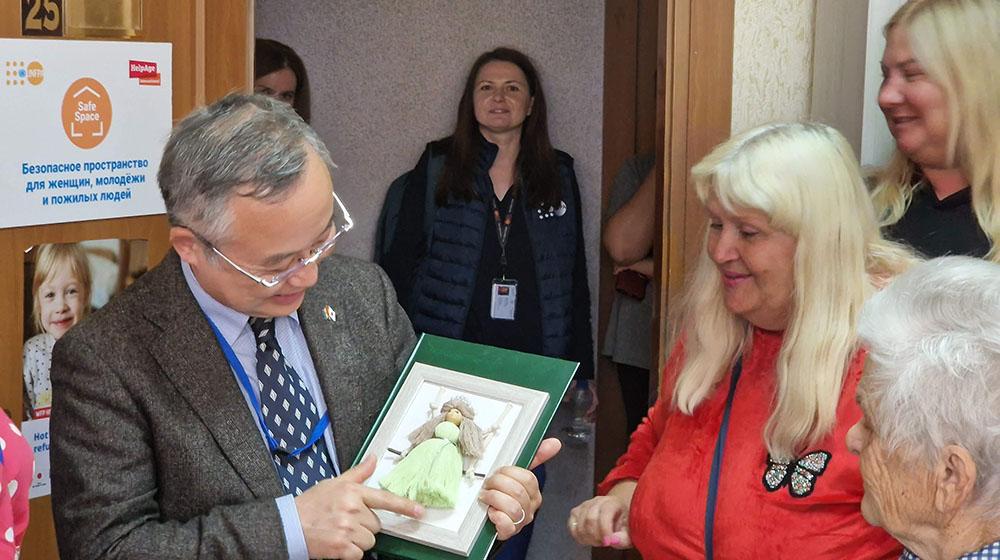The Government of Japan contributed an additional $600,000 to bolster the ongoing humanitarian efforts of the United Nations Population Fund (UNFPA) in the Republic of Moldova. This supplemental funding will further enhance UNFPA's gender-based violence (GBV) prevention programs, survivor support services, and active ageing opportunities for refugees and host communities.
UNFPA partnered with Japan since the beginning of the crisis, ensuring that women, youth and older persons stay healthy and safe in the face of crisis. To date, UNFPA has established 33 static and mobile Safe Spaces in Moldova, reaching over 53,000 women and girls with GBV and Sexual Reproductive Health (SRH) information, support, and services. With Japan's additional funding, UNFPA can sustain seven existing static and three mobile Safe Spaces through 2024, ensuring continuity of these vital GBV services.
Approximately 20% of Ukrainian refugees in Moldova are older persons, many living alone or separated from family members. To address this, UNFPA will partner with the Ministry of Labour and Social Protection and HelpAge Moldova to increase social inclusion and solidarity among the most vulnerable older refugees and host community members. As part of UNFPA's broader humanitarian response, this project aligns with the Social Protection System Reform "RESTART" and National Programme on Active and Healthy Ageing. It will support local authorities in creating active ageing initiatives at a local level, fostering socialization and facilitating access to social services.
In addition to the ongoing partnership, Japan’s previous contribution to UNFPA’s response played a crucial role in ensuring that survivors of sexual violence received essential and holistic support. UNFPA was able to equip medical emergency units, enabling survivors to receive quality post-rape care in safe and confidential conditions. Medical professionals continue to be trained to ensure that the care they provide is sensitive to survivors' needs and is in line with WHO standards.


